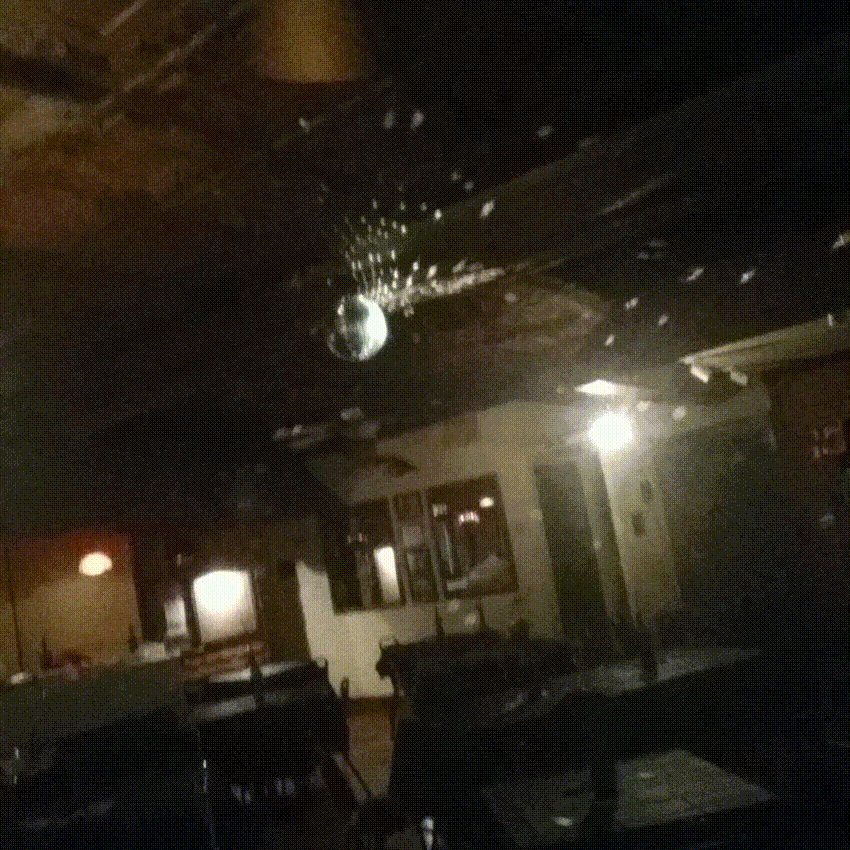
Edwin’s Roadhouse a.k.a. Capone’s MIAMI GARDENS

© 2023 Edwins, Inc

Henry August Baumann (6/10/1884 - 4/28/1939)
Henry August Baumann was born (1884) in Aurora, Illinois; the oldest of five children, brought into this world by August Baumann, born (1859) in Germany, and Lena Thill- Baumann, born (1863) in Wisconsin. His siblings included William Peter (1887,) Mary C. (1892,) Anna Margaretha (1892) and Elizabeth “Lizzie” (1896.) By 1900, Henry’s father August had relocated the family to West 51st Street in Chicago. In 1910, Henry was married and operating a saloon business located at 432 S. Canal St. It was here that he came in contact wtih Big Jim Colosimo, the first Chicago Mob boss of organized crime. Tragically by 1911 his young wife, Annastasia, is dead. She is buried in the family plot located in St. Marys Cemetery, Evergreen Park, Illinois. In 1912, Henry Baumann’s mother and sister were nearly killed when 5 masked men forced there way into their home located at 3830 S Honore St. in Chicago. Police shrugged it off to either robbery or a “fued.” Some say it was the work of the Black Hand. One thing is for sure, no one in the Baumann family was talking. In 1928, Henry aquired farm land for the sum of $900 to create Miami Gardens. Construction was soon undertaken, and an enormous 2 story commercial structure was built, with full basement and 2 auxiliary buildings. There were 11 rooms for lodging, a servants’ quarters and the building known as “the sugarhouse” where illegal alcohol was stored. What the public didn’t know is that Henry A. Baumann buillt Miami Gardens in Peotone, Illinois, for Al Capone, to serve as a speakeasy and regional center for the Outfit. It was built just one mile South of the township, had a construction cost of approximately $1,000,000 in today’s money, yet is undocumented in the historic publications of this town. Pictured is the dance and dining hall, the original room where Al Capone would dine in a booth with drawn curtains. Our investigation shows that this location contained sophisticated banking equipment, routinely used for accounting large sums of money, tracking inventories, payables, receiveables and payroll. The over-sized business office, with hand-painted mural and secured entryway, was also used for gambling and meetings. Throughout our booklet, Miami Gardens, The Secret Roadhouse of Al Capone, we provide more facts and pictures of Miami Gardens, that we have uncovered through research and investigation, and share what our locals have told us. But our story doesn’t end here. We are inviting the public to join us on our continuing effort to uncover the whole truth about Miami Gardens. This business has been scarcely documented in the history of Peotone.




Edwin’s Roadhouse aka
Capone’s MIAMI GARDENS
Henry August Baumann (6/10/1884 -
4/28/1939)
Henry August Baumann was born (1884) in Aurora, Illinois; the oldest of five children, brought into this world by August Baumann, born (1859) in Germany, and Lena Thill-Baumann, born (1863) in Wisconsin. His siblings included William Peter (1887,) Mary C. (1892,) Anna Margaretha (1892) and Elizabeth “Lizzie” (1896.) By 1900, Henry’s father August had relocated the family to West 51st Street in Chicago. In 1910, Henry was married and operating a saloon business located at 432 S. Canal St. It was here that he came in contact wtih Big Jim Colosimo, the first Chicago Mob boss of organized crime. Tragically by 1911 his young wife, Annastasia, is dead. She is buried in the family plot located in St. Marys Cemetery, Evergreen Park, Illinois. In 1912, Henry Baumann’s mother and sister were nearly killed when 5 masked men forced there way into their home located at 3830 S Honore St. in Chicago. Police shrugged it off to either robbery or a “fued.” Some say it was the work of the Black Hand. One thing is for sure, no one in the Baumann family was talking. In 1928, Henry aquired farm land for the sum of $900 to create Miami Gardens. Construction was soon undertaken, and an enormous 2 story commercial structure was built, with full basement and 2 auxiliary buildings. There were 11 rooms for lodging, a servants’ quarters and the building known as “the sugarhouse” where illegal alcohol was stored. What the public didn’t know is that Henry A. Baumann buillt Miami Gardens in Peotone, Illinois, for Al Capone, to serve as a speakeasy and regional center for the Outfit. It was built just one mile South of the township, had a construction cost of approximately $1,000,000 in today’s money, yet is undocumented in the historic publications of this town. Pictured is the dance and dining hall, the original room where Al Capone would dine in a booth with drawn curtains. Our investigation shows that this location contained sophisticated banking equipment, routinely used for accounting large sums of money, tracking inventories, payables, receiveables and payroll. The over-sized business office, with hand-painted mural and secured entryway, was also used for gambling and meetings. Throughout our booklet, Miami Gardens, The Secret Roadhouse of Al Capone, we provide more facts and pictures of Miami Gardens, that we have uncovered through research and investigation, and share what our locals have told us. But our story doesn’t end here. We are inviting the public to join us on our continuing effort to uncover the whole truth about Miami Gardens. This business has been scarcely documented in the history of Peotone.


© 2023 Edwins, Inc.




























